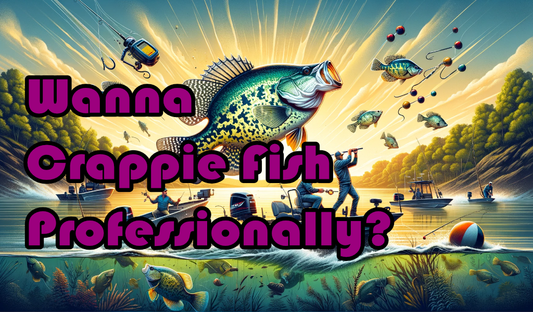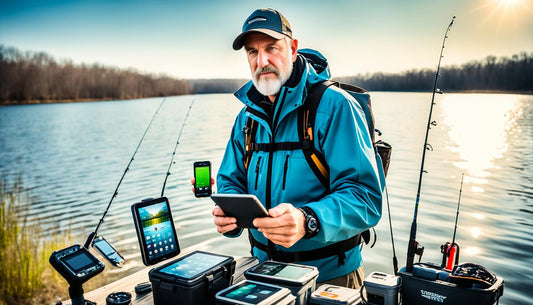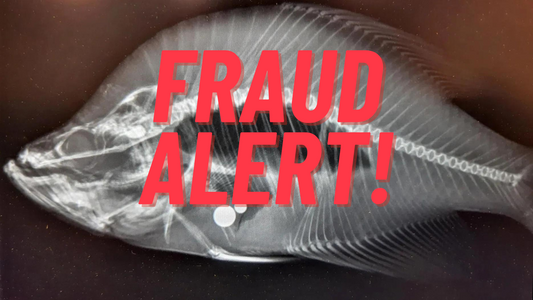Introduction
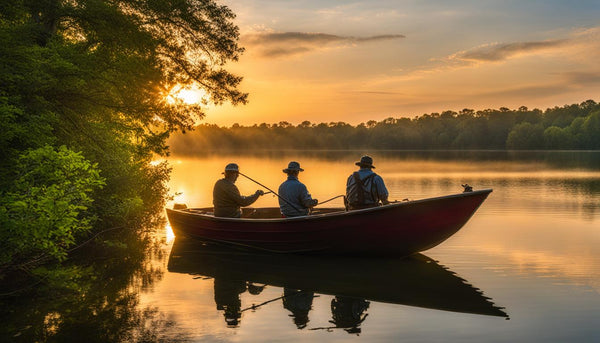
Hey there, fellow fishing enthusiasts! Welcome to the exciting world of beginner crappie fishing tips. If you're new to this, don't worry—I've got your back. I'm here to guide you through the basics and share some tips and tricks that I've picked up over the years. Crappie fishing is not just a hobby; it's a passion for many, and I'm here to help you catch that elusive slab. So, let's dive in!
Understanding Crappie
Crappie 101: Know Your Fish
Before we hit the water, let's get to know our target: crappie. The black crappie  tends to hang out near structures like submerged trees, while white crappie are often found near underwater brush piles. Knowing these differences can be like deciphering a map to hidden treasure. Black crappie may be more challenging to catch, but the thrill when you do is incomparable.
tends to hang out near structures like submerged trees, while white crappie are often found near underwater brush piles. Knowing these differences can be like deciphering a map to hidden treasure. Black crappie may be more challenging to catch, but the thrill when you do is incomparable.
Where Do They Hang Out?
Crappie love hanging around submerged structures like brush piles and fallen trees. I once stumbled upon a honey hole in a quiet cove where old Christmas trees had been sunk—talk about a festive surprise! Identifying these hotspots is like finding a secret passage in a video game; it takes time, exploration, and a keen eye. Learning their seasonal habits is like deciphering a secret code. In spring, they're all about spawning, while in fall, they're on the move. It's like understanding the ebb and flow of a good story.

Essential Gear for Beginner Crappie Fishing Tips
The Right Tools for the Job
Now, let's talk gear. You don't need a tackle shop on wheels, but a decent rod and reel combo tailored for crappie can make a world of difference. Ultra-light or light-action spinning rods are great for crappie. I remember upgrading my gear and feeling like I went from a tricycle to a motorcycle—it was a game-changer! Pair that with a reliable spinning reel, and you'll be ready to tackle those slabs.
Lines, Leaders, and Tackle Galore
Choosing the right fishing line is like selecting the perfect tool for a job. Light lines, in the 4-8 lb test range, work wonders. Fluorocarbon lines offer low visibility in clear water, while monofilament lines can be forgiving for beginners. As for tackle, don't be overwhelmed by the variety. Find what works for you, and you'll soon have your go-to setup. It's a bit like finding your favorite pizza topping—personal and oh-so-satisfying.
Our in depth guide on how to set up a crappie fishing setup guide, is a great place to start for a more in depth on the specific pieces of a good crappie fishing rod and setup.
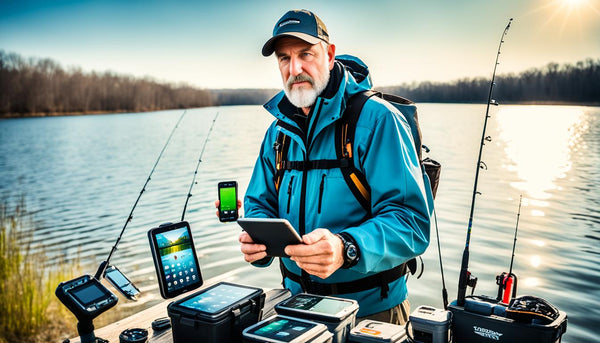
Choosing the Right Fishing Spot
Sherlock Holmes on the Water
Finding the right fishing spot is like being a detective. I once read the water like a book, spotting submerged structures with my trusty fish finder. It felt like I was solving a mystery, and the reward was a boatload of crappie. Invest in a good fish finder—it's like having sonar vision underwater. Understanding the contour lines on a map is akin to deciphering a top-secret code, revealing the hidden paths where crappie thrive.
Weather and Water Wizardry
Understanding water temperature and depth is like having a secret weapon. I've learned to adjust my tactics based on the season and weather. It's like knowing when to bring an umbrella or sunscreen—you adapt to the conditions. Crappie, like any creatures, have preferences. They may prefer deeper waters during hot summer days and move towards shallower areas during cooler mornings and evenings. It's like understanding the language they speak without them saying a word.
Beginner Crappie Fishing Tips Techniques
Dance Moves for Your Lures
When it comes to beginner crappie fishing tips, think of it as a dance. Jigging is like a slow waltz that entices them, while trolling is more of a lively jig. I once experimented with a new dance move—a subtle twitch of the rod—and, boom, crappie on the line! It's all about finding your rhythm. Experiment with different jigging techniques. Sometimes, a slow, deliberate jig can mimic a wounded baitfish, triggering a predatory response from crappie.
Timing Is Everything
Knowing when to strike is like catching the perfect wave. Time of day matters, and crappie have their favorite hours. Early mornings and evenings are prime time, and trust me, catching a sunrise while reeling in a slab is a moment to cherish. However, don't rule out midday fishing, especially during overcast conditions. Crappie can be surprisingly active, and you might just have the lake to yourself.

Bait Selection and Presentation
Crappie's Gourmet Menu
Understanding crappie's diet is like knowing their favorite restaurant. Live bait like minnows or jigs that mimic their prey works wonders. It's like offering them a gourmet meal, and who can resist that? Experiment with different bait sizes and colors to see what entices them. Crappie can be picky eaters, so having a variety of options in your tackle box gives you the flexibility to adapt to their mood. For more on our favorite crappie jigs check out our article on our top 8 jigs!
The Art of Presentation
Presenting your bait is an art form. Slow and steady wins the race. It's like trying to impress a shy date—no need to rush; let the bait do the talking. Play around with different colors and sizes until you find what they can't resist. Crappie often respond to subtle movements, so try a slow retrieve with occasional pauses. Mimic the natural movements of their prey, and you'll increase your chances of a successful hookup.

Understanding Seasonal Patterns
Spring Fling: Spawn and Pre-Spawn
In spring, crappie are in the mood for love. They gather near shallow waters, and it's like attending a fishy prom. Cast near spawning beds, and you'll be the matchmaker. Use light jigs and minnows in these areas, but be mindful not to disturb the nests. The key is to find that balance between tempting them and respecting their space. For a more in depth understanding of crappie spawning behavior, look to our crappie spawn fishing guide.
Summer Heat: Adapting to Warm Waters
As temperatures rise, crappie go deeper. It's like seeking shade on a scorching day. Adjust your techniques, go a bit deeper, and you'll find them chilling in comfort. Try trolling or spider rigging with multiple rods to cover more water. Pay attention to underwater structures in deeper areas, and you might discover their secret hideouts.
Fall Migration: Follow the Crowd
Fall is when crappie start their migration. It's like a fishy road trip. Follow the movement, and you'll hit the jackpot. Look for schools of baitfish and adjust your tactics accordingly. Crappie can be more aggressive during this period, so be prepared for some exciting action. Experiment with different depths and lures until you find what triggers their feeding frenzy.

Winter Chill: Slow and Steady
Winter means slowing down. It's like crappie are in hibernation. Fish deeper and slower, and you might just wake them up with a tasty offering. Vertical jigging near structures can be effective during colder months. Pay attention to subtle bites, as crappie tend to be more lethargic in cold water. Patience is key, and you'll be rewarded with the occasional winter slab.
Safety and Regulations
Know the Rules
Before you hit the water, know the rules. Fishing regulations are like the code of conduct. Ignoring them is like crashing a party uninvited—it won't end well. Familiarize yourself with the specific rules for the body of water you're fishing. Catch and size limits are in place to ensure a sustainable fishery. It's not just about following the rules; it's about being a responsible angler and preserving the sport for future generations.
Safety First
Fishing is fun, but safety is paramount. Life jackets, first aid kits, and a reliable buddy are like your fishing armor. I once had a close call with a sudden storm, and having the right gear made all the difference. Check the weather forecast before heading out, and always let someone know your fishing plans. It's not just about catching fish; it's about returning safely to shore after a successful day on the water.

Tips for Beginner Crappie Fishing Success
Embrace the Learning Curve
Crappie fishing is a journey, not a destination. Embrace the learning curve like a good book that keeps getting better with each chapter. Every trip is a chance to grow as an angler. Learn from your successes and failures, and don't be afraid to try new techniques. The more you fish for crappie, the more you'll understand their behavior and preferences.
Learn from Every Trip
Each fishing trip is a lesson. Even on the days when the fish aren't biting, there's something to be gained. It's like life—you learn, adapt, and come back stronger. Pay attention to the details: the weather, water conditions, and the lures that worked or didn't. Document your experiences, and over time, you'll develop a mental database of what works in different situations.
Connect with the Locals
Local anglers are a treasure trove of knowledge. Strike up a conversation at the bait shop or join a fishing club. It's like joining a secret society where everyone shares the same passion. Swap stories, exchange tips, and even consider fishing with someone more experienced. You'll not only gain valuable insights but also make lifelong fishing buddies. The camaraderie among anglers is like an extended family—it adds an extra layer of enjoyment to the sport.
Conclusion
So there you have it, the basics of beginner crappie fishing tips from one enthusiast to another. Remember, it's not just about catching fish; it's about the thrill of the chase and the joy of being on the water. As you embark on your crappie fishing adventures, savor every moment, learn from each trip, and enjoy the journey. Who knows, you might just hook into the crappie of a lifetime. Tight lines, and happy fishing!


